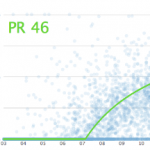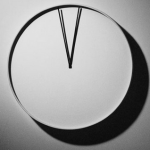What We Are Reading
Ernesto Ramirez
May 25, 2014
Another long list of interesting stuff we’ve been reading this week. Enjoy!
Articles and Posts
Pilot at Boston’s Beth Israel Deaconess gives patients electronic access to therapists’ notes by Lena H. Sun. Should patients be able to read their therapist’s notes? A hospital in Boston is experimenting with that idea. This work was inspired by a project from our friends at the Robert Wood Johnson Foundation called Open Notes.
What If Our Refrigerators Get A Little Too Smart? by Owen Thomas. Are we setting up ourselves for a algorithmic controlled future of connected systems? Owen Thomas paints a slightly disturbing picture here in just a few sentences. (If someone writes a utopian rebuttal I would love to hear it.)
Google vs. our humanity: How the emerging “Internet of Things” is turning us into robots by Evan Selinger. Another nice piece on the ever increasing role algorithms have in our lives. I found the article well researched and full of interesting examples, least of not is the delegation of works onto wedding planners. (I was also tickled to learn that the chief economist at Google is named Hal.)
The United States of Metrics by Bruce Feiler. Apparently negativity is a theme this week. In this piece the author attempts to make the case that in using data to track understand your life, you are giving up the essence of life itself:
“Big Brother isn’t our big enemy anymore. It’s Big Self. That hovering eye in the sky watching every move you make: It’s you.”
The United States of Metrics isn’t such a bad thing by Nathan Yau. A short but great rebuttal to to the perceived grouchiness in Bruce Feiler’s piece mentioned above.
Here’s how I see it: I strongly believe in going with your gut instincts. It’s led me in the right direction more often than not. But, sometimes I move in the wrong direction, or I don’t know enough about a subject and all I have is uncertainty. If there’s data there to help then all the better.
Personal data and the quantified self – things you ought to know by Vicky Sargent. This is a nice review of the book, Hacking H(app)iness, by John C. Havens, which in part details how Quantified Self and tracking can influence happiness and mental wellbeing. (Editors note: A short book review of Hacking Happiness is forthcoming in a future What We’re Reading post.)
Data Ethic Workshop. Not an article, but a call for participation at a workshop on data ethics at the International Conference on Knowledge Discovery and Data Mining. Definitely something I’ll be keeping my eye on and will post papers as they become available.
What the Right Dashboard Can Do For Your Data by Thursday Bram. A nice overview of some available data dashboard systems and how dashboards can be useful for understanding multiple streams of personal data.
Show&Tell
A Look at a Few Months of HR and HRV Measurements by Marco Altini. Marco explains how he tracked his heart rate and heart rate variability while preparing for a half marathon and what he learned after 3 months of data collection. Take the time to read through this excellent post. It is really worth your while.
100 Blocks – A ‘Quantified Self’ Random Walk Experiment by Peter Gilks. Inspired by the mathematical concept of a Random Walk, Peter set out with his wife to let chance direct a 6-hour journey in New York City. Tracking all the way.
Quantified Jewel by Jewel Loree. Jewel has been tracking her music listening with Last.fm for years. After showing her pattern of music profiles to a colleague she was inspired to start looking deeper to answer an intriguing question, “What was I listening to sadder music every couple of weeks?”
Visualizations
Tablea’s Quantified Self Viz Contest. Notice anything about a few of those Show&Tell links above? They’re using Tableau as a their visualization platform. Tableau is hosting a Quantified Self Visualization contest. If you have some tracking data and want to share a unique visualization then you enter this contest and you just might win a chance to attend their annual conference. Contest ends May 26th.
 Percentile Feedback by Noah Slater. This is actually a combination visualization and tracking tool. Based on the great work of our dearly missed friend, Seth Roberts, and adaptations by Nick Winter, Noah has created a nice open-source project so you can experiment with Percentile Feedback. (Watch this talk by Nick to learn how he uses Percentile Feedback for productivity.)
Percentile Feedback by Noah Slater. This is actually a combination visualization and tracking tool. Based on the great work of our dearly missed friend, Seth Roberts, and adaptations by Nick Winter, Noah has created a nice open-source project so you can experiment with Percentile Feedback. (Watch this talk by Nick to learn how he uses Percentile Feedback for productivity.)
 Uji Wall Clock. This arcticle and interview with Ivor Williams explains why he built a clock who’s hands move to an individual’s heart rate. You can also see a video of the clock “in motion” here.
Uji Wall Clock. This arcticle and interview with Ivor Williams explains why he built a clock who’s hands move to an individual’s heart rate. You can also see a video of the clock “in motion” here.
 Kinetic Frequency. I’m a big fan of Stephen Cartwright’s work around designing physical installations that feed on location data. This new work uses color and and a 10×10 grid of movable columns to “display an infinite number of topographies based on a wide variety of inputted data.”
Kinetic Frequency. I’m a big fan of Stephen Cartwright’s work around designing physical installations that feed on location data. This new work uses color and and a 10×10 grid of movable columns to “display an infinite number of topographies based on a wide variety of inputted data.”
From the Forum
Best Pulse Oximeter for All-Night Logging?
Breakout: Aggregator platforms: Understanding data?
Where Do You Keep Your Version of MyLifeBits?
Want to receive the weekly What We Are Reading posts in your inbox? We’ve set up a simple newsletter just for you. Click here to subscribe.


